latest development in Donald Trump’s New York civil fraud case where his appeal against a gag order was denied on Thursday, highlighting ongoing legal challenges and implications.
Attorney General Letitia James filed a lawsuit against the former President, alleging that he overestimated his business worth to show profits, which would help him get low-rate loans from the banks by presenting false financial statements about his business. The lawsuit seeks Trump to pay at least $250 in damages and restrict him from doing business in New York.
Trump appealed in the New York appeal court to overturn the earlier gag order to prohibit him from publicly attacking any court staff or persons involved in his New York civil fraud case.
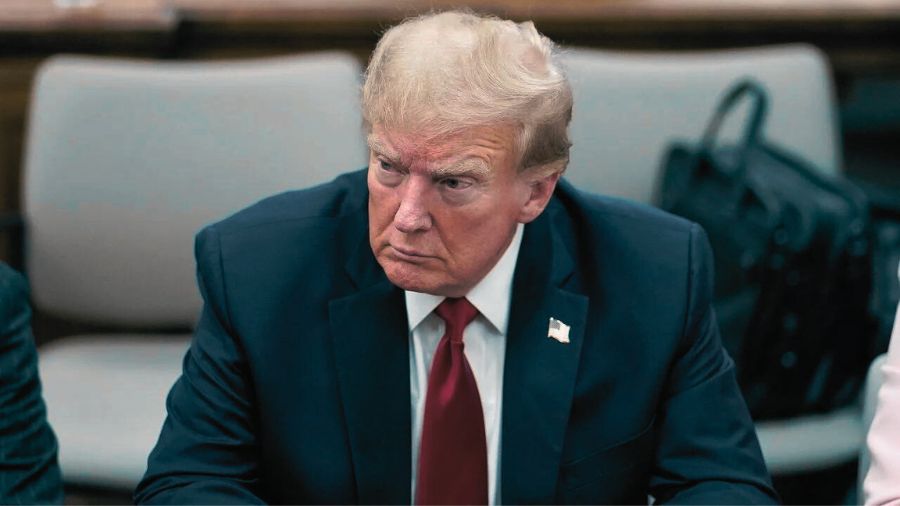
In the latest order, the Judge overseeing the case, Justice Arthur Engoron, denied Trump’s request to appeal against the reinstatement of the order to the Court of Appeals, stating the “gag order did not have a major impact.”
The Judge’s order on Thursday read, “Here, the gravity of potential harm is small, given that the Gag Order is narrow, limited to prohibiting solely statements regarding the court’s staff.”
The Judge also fined Trump $15,000 for twice violating the gag order.
Engoron has criticized Trump’s legal approach known as a ‘writ of prohibition’ to overturn his gag order in the case and said the approach is inappropriate. The court also ruled that the gag order and fines in the case could be reviewed through the ordinary appeals process. The Judge is expected to issue the order in writing after closing arguments on January 11, 2024.
While Engoron had already ruled in September that the former President was guilty in the case and fraudulently overestimated his business value in the financial statements, the trials to decide on the remaining charges continue.
Background of the Gag Order
Justice Arthur Engoron issued a limited gag order on October 3, 2023, to ban Trump from publicly making statements against the prosecutors, court staff, potential witnesses, or anyone involved in his civil fraud lawsuit.
The gag order came after the former President criticized Justice Engoron’s law clerk, Allison Greenfield, in a social media post by sharing her photo with Democrat Senate Majority leader Chuck Schumer and calling her “Schumer’s girlfriend.”
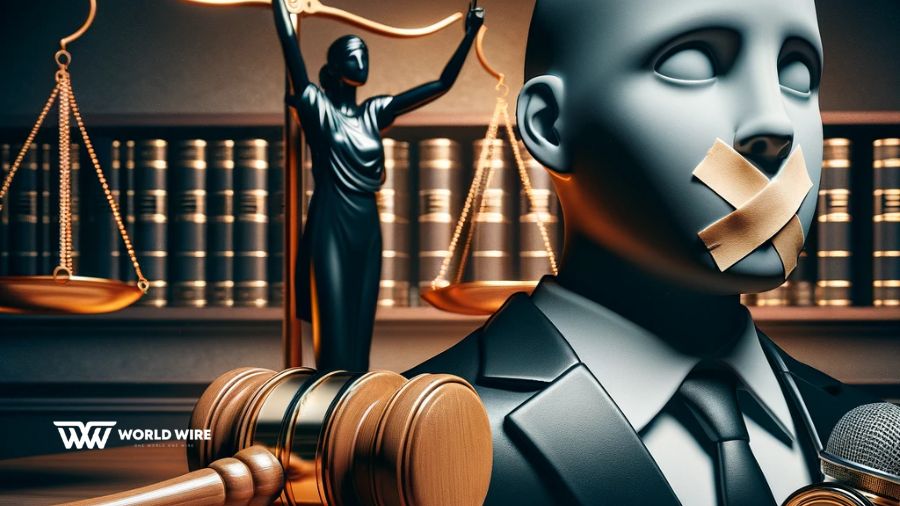
The Judge temporarily held the gag order on November 16, 2023, after Trump’s legal team appealed in Appellate Court against the gag, claiming it violated his First Amendment right to free speech and restricted his right to speak about the court trials publicly. The appeal raised procedural concerns about the scope of the gag order. However, a panel of judges reinstated the gag order two weeks later.
Justice Engoron noted that the order was necessary to protect the court staff from potential threats that Trump’s social media post shows. He also argued that public attacks on his staff could challenge the fairness of the proceedings.
The gag order remains in effect in Trump’s civil case despite his constant efforts to overturn it.
Since the order limits the former President to criticizing people related to the case, it also has some invisible impacts on his 2024 presidential campaign. With the order in effect, Trump cannot openly attack people he thinks are responsible for this case and, as such, cannot act like a victim of legal proceedings for the alleged charges to earn voters’ support.
Impact of Social Media on the Legal Process
Social media plays a huge role in every aspect of life, so its impact on the legal process must be defined. Considering Trump’s civil fraud case, social media has positive and negative impacts.
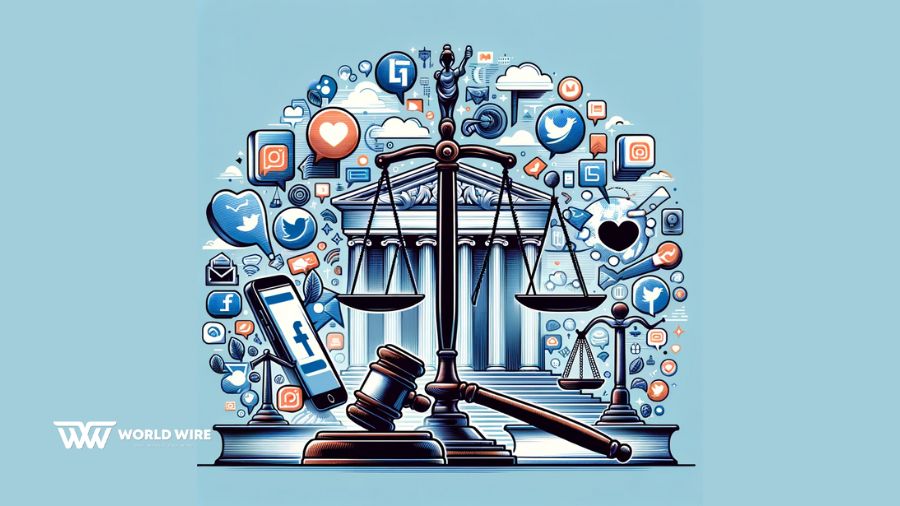
Social media offers some benefits in making the legal process transparent and providing people with information about the proceedings. For example, live-streaming courtrooms can help people understand the case in a better way. At the same time, social media can have some worse consequences.
The former President’s frequent attacks on the Judge and court staff through his social media posts have led to the imposition of a gag order in the case restricting Trump’s and his lawyers’ ability to target court staff in public. This, in turn, has raised concerns about freedom of speech and transparency in the legal process. With the heavy involvement of social media, balancing a fair trial has become challenging.
Moreover, social media can create public pressure on the Judge, which can influence the result of legal proceedings.
Additionally, social media can be used to put significant pressure on witnesses in the case, making it difficult to have enough evidence to have a fair trial, or it can also be used to destroy the potential evidence, again affecting the case’s outcome.
In conclusion, the impact of social media on the Trump civil fraud case is huge. However, it remains to see how Trump’s legal team uses it to make a difference in his case trials.
Trump’s Legal Team’s Argument Against the Gag Order
Although Justice Engoron has denied Trump’s bid to challenge the gag order in the appellate court, Trump’s lawyers have consistently emphasized the constitutional status of the gag order.
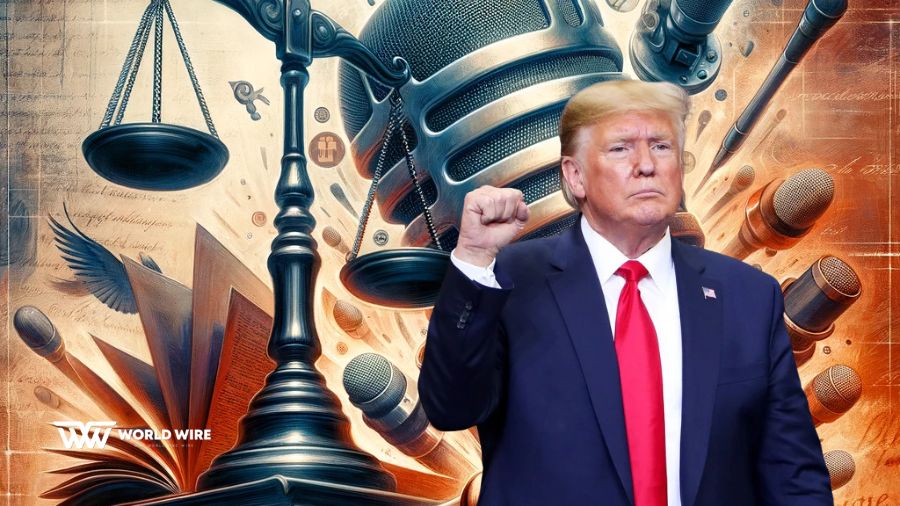
In the case, Chris Kise, Trump’s lawyer, said the decision “denies President Trump the only path available to expedited relief and places his fundamental Constitutional rights in a procedural purgatory.”
Trump’s legal team’s arguments on the gag order mainly revolve around violation of
Trump’s First Amendment right to free speech.
The lawyers claim that it prevents Trump from defending himself and exercising his right to criticize the court proceedings. They claim that, though critical and controversial, the First Amendment protects Trump’s comments, so the gag order is unconstitutional.
Also, Read | Donald Trump Stung by Court Filing on Thanksgiving
Broader Legal Challenges for Trump
The recent order rejecting Trump’s request to overturn the gag order in his civil fraud case in New York has come as another legal blow in addition to multiple legal troubles the former President is already facing while running for the 2024 presidential election.
Trump faces 91 criminal charges in four different lawsuits. Although none of them has affected his lead for the GOP nomination in the 2024 race, the latest judgment can hurt the proceedings of his other cases. The judges can issue similar gag orders in other lawsuits, limiting his freedom to publicly discuss the people and the case while campaigning to win the White House in 2024.
Table of Contents





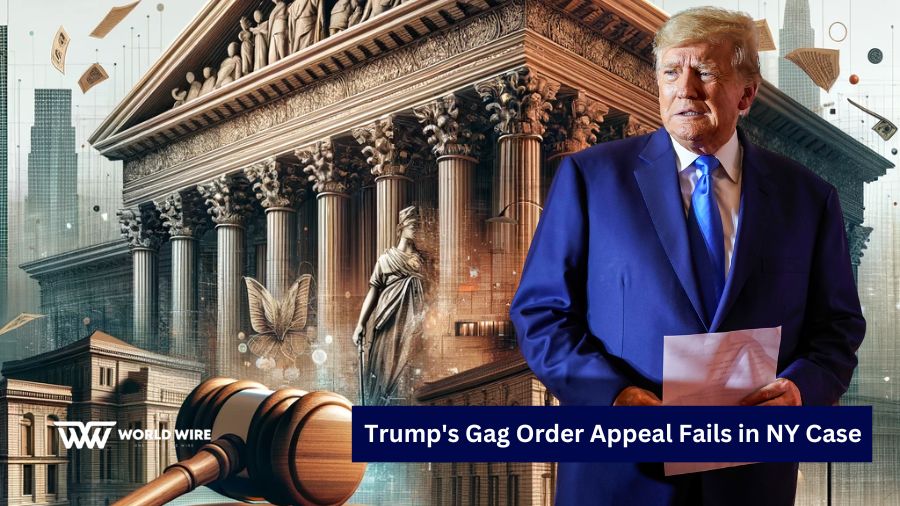

Add Comment